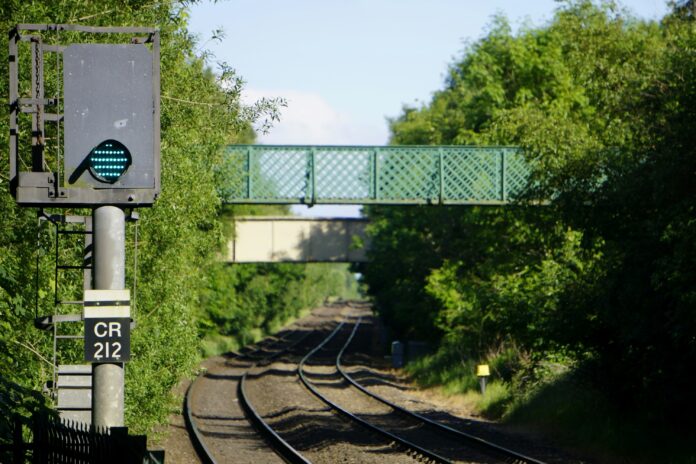Following the Chancellor’s landmark announcement of a £15.6 billion investment in city region local transport infrastructure, the UK rail supply chain is poised for unprecedented opportunities. This substantial funding commitment, signalling a “Renewal of Britain” and a strategic shift towards regional investment, demands proactive engagement from companies eager to secure their share of upcoming work.
The Chancellor, Rachel Reeves, underscored the government’s intention to foster growth across all parts of the country, moving away from an over-reliance on a few economic hubs. This commitment translates into tangible projects such as the Metro extension linking Washington to Newcastle and Sunderland, the renewal of South Yorkshire’s tram network, the West Yorkshire Mass Transit system, a metro extension to Birmingham’s sports quarter, and significant enhancements to Manchester’s Metrolink tram network.
Below, we include a breakdown of the funding – and individual news items relating to that news. Read through and understand the focus for each region by clicking on the region name.
Mayoral breakdown of Transport for City Regions funding:
| Mayoral Combined Authority | Funding allocation (27/28-31/32) (1) | Projects likely to be taken forward by mayors |
|---|---|---|
| West Midlands | £2.4 billion | Metro extension connecting Birmingham City Centre to new sports quarter, unlocking £3bn investment from private investors. This is the first phase of new mass transit from East Birmingham to North Solihull. |
| West Yorkshire | £2.1 billion | Spades in the ground to start building West Yorkshire Mass Transit by 2028, with aim for first services by mid-2030s. Transforming six transport corridors in West Yorkshire not covered by the mass transit routes, including through new bus stations at Bradford and Wakefield |
| Greater Manchester | £2.5 billion | Major infrastructure projects to unlock new homes, jobs and better connect communities, including growing and transforming the Metrolink tram network, with new tram stops in Bury, Manchester and Oldham and Metrolink extension to Stockport. A fully electric Bee Network, with zero emission public transport network across bikes, bus and tram by 2030, including purchase of 1,000 new electric buses. |
| South Yorkshire | £1.5 billion | £530m to renew the tram network, providing a fleet of new, replacement vehicles, modernising tram stops, as well maintenance to improve reliability. £350m to reform South Yorkshire’s buses, with franchised buses operating in Sheffield, Doncaster and Rotherham by 2027 and across the whole of South Yorkshire by 2029. |
| Liverpool City Region | £1.6 billion | £100m for 3 new bus rapid transit routes, to the Liverpool John Lennon Airport, Everton stadium and Anfield. Buying a brand-new fleet of buses for the city region’s franchised bus network, beginning with St Helens and the Wirral in 2026 and then Sefton, Knowsley, North and South Liverpool in 2027. |
| North East | £1.8 billion | Metro extension linking Newcastle and Sunderland via Washington, serving one of the largest advanced manufacturing zones in the UK. |
| West of England | £0.8 billion | £150m to improve rail infrastructure across the region, including funding to support WECA’s ambitions for increased frequency of services between Brabazon and the city centre. £200m for Mass transit development between Bristol, Bath, South Gloucestershire and North Somerset. |
| Tees Valley | £1.0 billion | £60m for the Platform 3 extension at Middlesbrough station, unblocking the local network. |
| East Midlands | £2.0 billion | Designing a new mass transit system to connect Derby and Nottingham, encompassing road, rail and bus improvements across the Trent Arc corridor. |
Some of this funding will be brought forward to 2025/26 and 2026/27 to ensure communities see the benefit of this significant investment even earlier.
For rail supply chain companies, this presents a critical window to position themselves for upcoming contracts. Here’s what businesses should be doing in the coming months:
1. Understand the Specific Opportunities
The £15.6 billion is not a single, monolithic fund. It will be allocated to various city regions, each with their own transport ambitions and specific project pipelines. Companies must:
- Research individual city region plans: Delve into the detailed proposals for West Yorkshire, Greater Manchester, the West Midlands, South Yorkshire, the North East, and Tees Valley. Understand the scope of their projects, the types of infrastructure being developed (e.g., light rail, heavy rail enhancements, signalling upgrades, station refurbishments, electrification), and their timelines.
- Identify relevant project categories: Determine which aspects of the announced projects align with your company’s core competencies. Are you a specialist in track laying, signalling, rolling stock components, station fit-out, digital systems, or maintenance services?
- Monitor official publications: Keep a close eye on further announcements from the Department for Transport, individual mayoral combined authorities, and transport executives. The upcoming Spending Review next week (following the Green Book review on 11th June) will provide more granular detail on funding allocations and project specifics.
2. Identify Tier 1 Contractors and Key Delivery Partners
While the funding empowers local leaders, the actual delivery of these complex rail and mass transit projects will often fall to large, established Tier 1 contractors. These major players then engage a vast network of sub-contractors and suppliers across various tiers.
Companies should:
- Research their current projects: Understand which Tier 1 contractors are already active in the relevant city regions or on similar rail projects.
- Network strategically: Engage with these Tier 1 contractors and their procurement teams. Attend industry events, conferences, and supplier days where these companies are present.
- Understand their supply chain requirements: Each Tier 1 contractor will have specific pre-qualification criteria, health and safety standards, and sustainability targets that potential suppliers must meet.
3. Enrol on Procurement Lists and Supplier Qualification Schemes
Timely registration on relevant procurement platforms and supplier qualification schemes is paramount to being considered for opportunities. Missing these early steps can mean missing out on significant contracts. Key actions include:
- Register on the Cabinet Office’s central digital platform: This is essential for suppliers to participate in any public sector procurement in the UK.
- Sign up to ‘Find a Tender Service’ (FTS) and Contracts Finder: These government portals advertise high-value contract opportunities and framework agreements. Companies should set up alerts for relevant categories.
- Register on Network Rail’s BravoNR portal: While the new investment focuses on local transport, Network Rail remains a significant client and many projects will involve interfaces with their infrastructure.
- New to rail? Utilise RISQS (Rail Industry Supplier Qualification Scheme): For companies supplying safety-critical goods, works, or services under Railway Industry Commodity Classification List (RICCL) codes, RISQS is the industry-standard qualification system used by Network Rail and other buyers.
- Explore other relevant local authority portals: Many city regions and transport authorities will have their own procurement platforms or preferred methods for engaging suppliers. Proactive research into these is vital.
- Regularly review frameworks: Many contracts are awarded via framework agreements. Companies should identify and aim to join relevant frameworks that fit their business.
- Prepare your pre-qualification documents: Ensure your company’s financial records, insurance details, certifications (e.g., ISO), and relevant experience are up-to-date and readily available for pre-qualification questionnaires (PQQs).
As the Chancellor looks to “renew Britain” through this unprecedented local transport investment, the rail supply chain stands at the cusp of a golden age of opportunity. By understanding the landscape, identifying key partners, and streamlining their procurement readiness, UK businesses can play a pivotal role in shaping the future of the nation’s transport network and securing significant growth for themselves.





